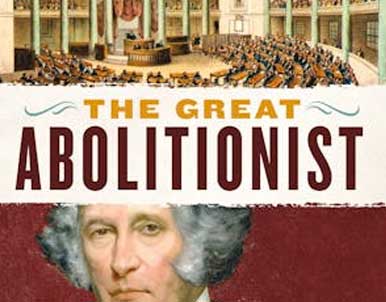Brendan’s Alternate Tagline for The Great Abolitionist:
Who would have thought slavery proponents could be so violent?
Quick synopsis:
The life of ardent American abolitionist and senator, Charles Sumner.
Fun Fact Non-History People Will Like:
While I don’t condone caning someone, it turns out Sumner did mock a colleague who just had a stroke during the speech which led to the altercation. This stroke victim was related to Preston Brooks who attacked Sumner. To paraphrase Chris Rock, I’m not saying Brooks should have caned him, but I understand.
Fun Fact for History Nerds:
Senators used to be chosen by the state legislatures. Americans didn’t vote directly for senators until 1913 with the passage of the 17th Amendment.
My Take on The Great Abolitionist:
Before Will Smith and Chris Rock at the Oscars, there was Preston Brooks and Charles Sumner in the Senate. Sumner took way more than a single slap, though.
Charles Sumner takes up a strange place in the American consciousness. He is, by far, most known for the caning he took from Brooks. His stellar abolitionist credentials are overshadowed by Thaddeus Stevens who stole the spotlight in the movie Lincoln. (Fun fact: Sumner was actually in the movie, too. I checked!) Due to this slight, Stephen Puleo is here to resurrect all of Sumter the way Spielberg did for Stevens, but in book form! My favorite!
The Great Abolitionist is a wonderful biography of a man who had an unassailable passion for abolition but would probably not be the first person you’d invite to a dinner. I always appreciate biographies more when they don’t shy away from the negative attributes of the subject. Sumter was unbending, arrogant, and what can generously be described as aloof. He had friends, but they had to see past a lot of negative personality traits. Also, the less said about his marriage the better.
Puleo focuses mostly on where Sumter fits into the political machinations from right before the Civil War to the end of Reconstruction. I certainly learned a lot about him, and I think I am generally well read on the Civil War era. Puleo makes everything interesting while being informative, but the first half (pre-caning) was much more interesting to me than post-caning. I don’t blame Puleo for this as it seems to me Sumter’s life after the attack loses some life. He becomes more of a passenger to the greater events going on as opposed to a catalyst. It’s a very minor critique, which again, is not Puleo’s fault and just more of a statement on how badly Sumter’s life was affected. This is still a must read for any Civil War nerd.
(This book was provided as an advance copy by Netgalley and St. Martin’s Press.)
Verdict:
An excellent biography. Buy it here!


Leave a Reply
You must be logged in to post a comment.